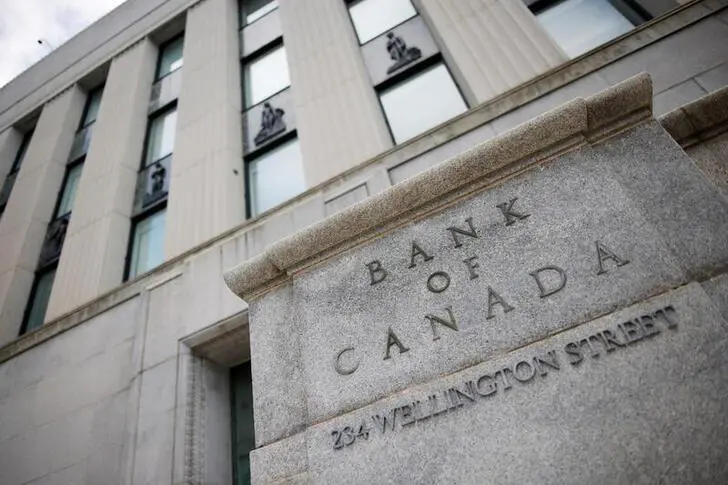PHOTO
The recent drop in long-term borrowing costs will likely make it more difficult for the Bank of Canada to tame inflation and could delay a shift to interest rate cuts if it leads to a reheating of activity in the housing market, analysts say.
Bond yields, along with the stock market and credit spreads, help determine financial conditions, or the cost and availability of credit to households and businesses. Central banks, including the BoC, rely on shifts in financial conditions to transmit monetary policy to the economy.
"It's an argument to believe that they (BoC policymakers) are going to wait longer before cutting rates because financial markets are already doing some of the easing for them," said Doug Porter, chief economist at BMO Capital Markets.
The Canadian five-year yield is down about 90 basis points from its October peak and the Toronto stock market has rallied as much as 9.6% in recent weeks, as investors globally bet that slower economic growth will prod central banks to abandon the higher for longer interest rate path that policymakers say is required to subdue inflation.
Consumer borrowing costs such as mortgage rates tend to follow moves in the bond market with a lag.
"A loosening of financial conditions usually helps improve economic growth," BoC Deputy Governor Toni Gravelle said on Thursday.
Canadian households are particularly sensitive to the interest rate outlook due to a shorter mortgage renewal cycle in Canada than in the United States and after they borrowed heavily during the pandemic to participate in a red-hot housing market.
Canadian home sales fell in October for the fourth straight month but analysts say that record levels of immigration and the prospect of rate cuts could spur demand in 2024.
Money markets expect the BoC to begin easing as soon as April and for rates to fall 90 basis points in 2024. The central bank has said it is too soon to be considering rate cuts.
Financial markets "are on the path toward reigniting housing imbalances, tamping down how monetary policy works through mortgage resets, inflaming further government spending and driving concomitant inflationary pressures," Derek Holt, head of capital markets economics at Scotiabank, said in a note.
In January, the BoC's signaling of a rate-hike pause reignited the housing market, which added to inflation and the need to resume tightening in June and July.
Canada's recent record of declining productivity and the pace of wage growth are other reasons to be cautious about the inflation outlook, say analysts. Headline inflation dropped to 3.1% in October, moving closer to the BoC's 2% target, but underlying price pressures have been slower to ease.
"Wage growth is soaring and collective bargaining agreements are cementing wage gains at rates well above the 2% inflation target for years to come," Holt said.
BoC Governor Tiff Macklem is due to speak on Friday. Last Wednesday, the central bank left its benchmark interest rate on hold at a 22-year high of 5% but left the door open to another hike, saying that financial conditions have eased and it was still concerned about inflation.
"It may well be that they are trying to gently push back on this big rally that we've seen in financial markets," BMO's Porter said. "The more the markets rally, it's less likely the bank is going to ease." (Reporting by Fergal Smith; Editing by Denny Thomas and Christopher Cushing)





















